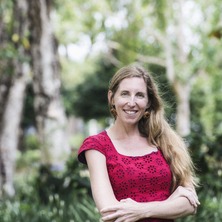Academic freedom – however elusive – is widely championed as the foundation of a good university.
In the latest issue of Australian Universities’ Review, special review editor Professor Kristen Lyons from the School of Social Science joins other University of Queensland researchers – alongside other scholars from Australia and Canada – in exploring what might be meant by academic freedom, and why its defence has become so important.

Academic Freedom’s Precarious Future investigates some of the forces threatening academic freedom from both within and without the university sector, as well as shining a light on those forms of collective organising that are being marshalled in its defence.
Professor Lyons and contributing authors examine how critical debates about academic freedom might open up opportunities for a revitalised university that is equipped to grapple with the contemporary challenges shaping our world today.
“This topic is timely, given amendments to the Higher Education Support Act that were made in March 2021,” Professor Lyons said.
“The insertion of definitions of ‘freedom of speech’ and ‘academic freedom’ illustrates how acutely politicised academic freedom, and universities, have become,” she said.
Similarly, the recent politically fuelled freedom of speech furore – demonstrated via protests on university campuses in response to a number of ‘reactionary speakers’ – exposes how intertwined universities are in today’s culture wars.
“This special issue provokes thinking about what the purpose of universities could be, and whose rights and interest they might support.”
Professor Lyons said the hope for this special issue is that it will further move academics, policymakers and others towards engagement with these ideas.
Associate Professor Andrew Bonnell from the School of Historical and Philosophical Inquiry is also a contributor. His research critically explores some of the threats to academic freedom.
“Threats to academic freedom are frequently associated with repressive government actions, and sometimes also with compliant university managers,” he said.
“In democracies, academic freedom can (also) be undermined in more subtle ways. Where public funding for university research and teaching has diminished, universities have increasingly pursued relationships with, and money from, the private sector.”
Associate Professor Bonnell said private funding can come with expectations that have the potential to limit academic freedom.
Meanwhile, in their contribution to the special issue, UNESCO Chair in Journalism and Communication Professor Peter Greste and Emeritus Professor Fred D’Agostino set out how easy it may be to confuse academic freedom with freedom of speech.
“It is illuminating to consider the responsibilities that frame academic freedom and thus distinguish it from the less constrained freedoms to speak that characterise our roles as citizens of democratic societies,” they said.
Professor Lyons said academic freedom is a vital part of ensuring a healthy functioning democracy, and as an antidote to the contemporary disease of post truth politics.
“Overall, the hope is that this special issue of Australian Universities’ Review – Academic Freedom’s Precarious Future. Why it Matters and What’s at Stake – will feed national (and international) curiosity and debate related to academic freedom, as well as critical thinking in regard to the responsibilities of universities for the common good,” she said.
In a recent Conversation article, contributing authors identify how the pressures on universities in Australia and overseas are hindering academic freedom, raising questions about just who, and what interests, universities are intended to serve.



